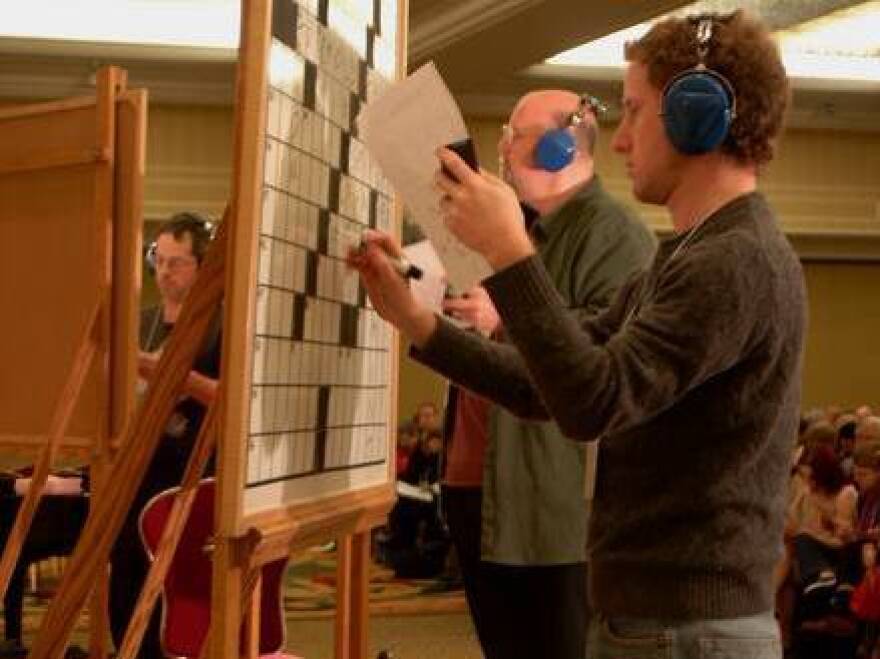There's a new kind of technology that may be able to beat you at your own game — at least if your game is a crossword puzzle. Its name is "Dr. Fill," but unlike the TV psychologist, this doctor solves less complicated problems. Its solutions only go down and across.
The computer program will be an unofficial competitor at the 35th annual American Crossword Puzzle Tournament in New York this week. It was created by Matt Ginsberg's software company, On Time Systems, which specializes in optimization algorithms.
Ginsberg actually constructs crossword puzzles for The New York Times, but say's he isn't a very good solver.
"I figured this would be a way for me to become a better solver sort of through a proxy," he says.
The way Dr. Fill solves crossword puzzles isn't unlike the way its human counterparts do. It looks at all the clues, tries to understand them and then fills in words, trying not to make mistakes.
"But its understanding of the constraints that come from the crossing words is much stronger, and it's doing much more sophisticated numerical analyses," Ginsberg says.
New York Times crossword editor Will Shortz says he looks forward to watching Dr. Fill perform at the tournament this year.
"Solving crosswords involves so much knowledge, so much stuff that's not in books, that's not in any database, that it is amazing to think that a computer could solve a crossword," Shortz says.
But the good doctor is not without its flaws. Ginsberg says Dr. Fill doesn't do well with the pun-filled answers.
"Somebody may have a puzzle that's about rabbits. And they'll have Bunny and Clyde, which is a clue in some bizarre way. And Dr. Fill knows about Bonnie and Clyde, but it has no idea about Bunny and Clyde. That's not a phrase that's in any of its dictionaries," he says. "And somehow it has to realize, oh, Bonnie and Clyde is wrong, Bunny and Clyde is right."
Dr. Fill might bring to mind IBM's Watson, which bested two Jeopardychamps last year. Just before Ken Jennings lost to Watson, he joked: "I, for one, welcome our new computer overlords."
But, fellow humans, take heart — there's always the off switch.
Copyright 2020 NPR. To see more, visit https://www.npr.org.


